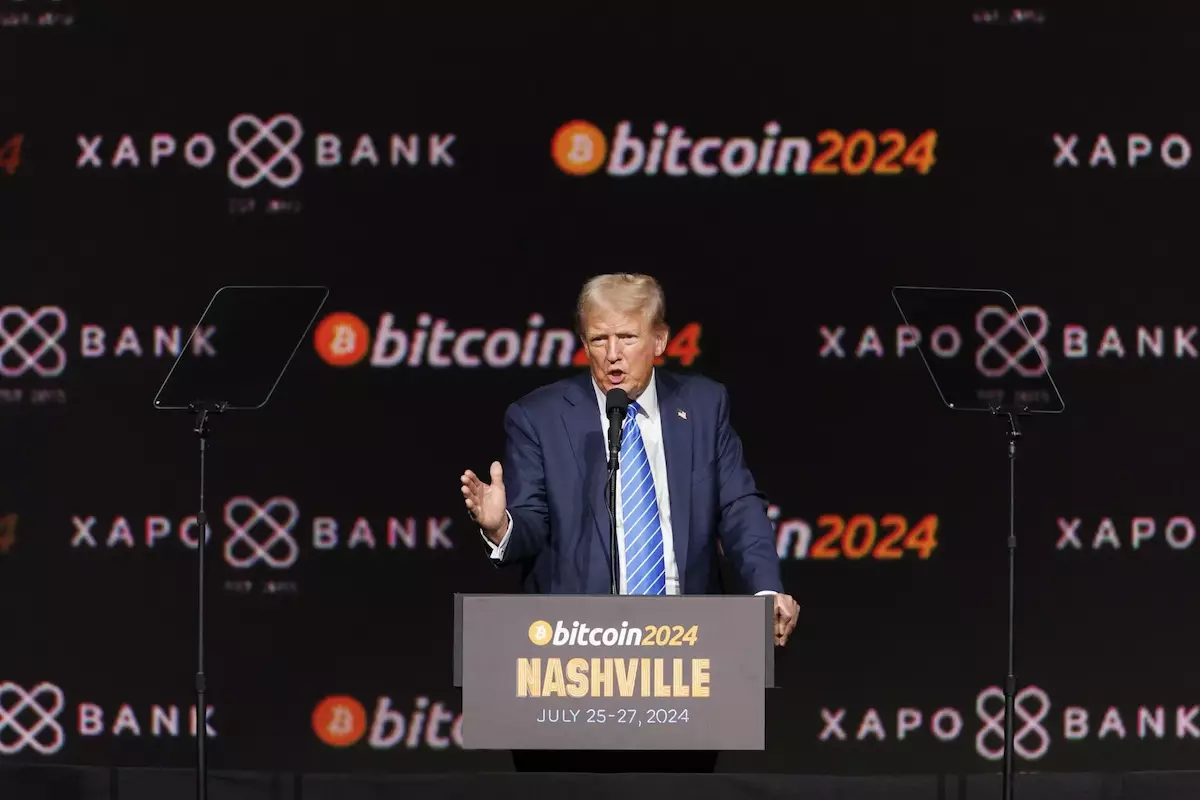The political landscape in the United States plays a significant role in shaping various industries, including the burgeoning realm of Web3 gaming. As Donald Trump secures a second chance at the presidency, discussions about his potential impact on digital assets and blockchain technologies have become a focal point, especially among Web3 gaming enthusiasts, developers, and investors. By examining Trump’s previous stances and the current global crypto atmosphere, we can glean insights into how his presidency could alter the direction of Web3 gaming.
During his first term, Donald Trump was an outspoken critic of Bitcoin, labeling it as a “scam” in 2021. This initial skepticism stemmed from his concerns that cryptocurrencies could undermine the US dollar’s dominance. However, time has changed the narrative. As the demand for blockchain technology escalates across various sectors, including gaming, Trump’s administration has indicated a more open approach to cryptocurrency and digital assets. This progression mirrors a broader global acceptance of blockchain technology as countries increasingly adopt crypto-friendly regulations.
With Trump’s recent claims of a shift towards a supportive regulatory framework for the blockchain sector, Web3 gaming may be positioned for significant growth. Regulations that support the tokenization of assets and gaming economies can provide the much-needed clarity for developers, enabling them to build immersive gaming experiences without the looming fear of legal repercussions. The previous regulatory ambiguity has often stifled innovation in the gaming sector; thus, a more favorable political environment could be vital in unlocking Web3’s potential.
The cryptocurrency market has demonstrated remarkable volatility, particularly during Trump’s first term. The dramatic price swings of Bitcoin and Ethereum, from Bitcoin’s rally to nearly $20,000 in late 2017 to its subsequent correction, highlight the unpredictable nature of this asset class. On one hand, the immense growth attracted considerable media attention and investments, even as prices plummeted in subsequent years. This oscillation has left many industry experts pondering whether such drastic fluctuations might inspire a more robust and clearer regulatory environment, which Trump appears ready to promote.
If the Trump administration emphasizes fostering a positive atmosphere for cryptocurrencies, it could lead to major investments in Web3 gaming projects. A surge in venture capital support would not only accelerate the development of new decentralized gaming platforms but could also stimulate innovative collaborations between traditional gaming entities and blockchain companies. Such synergies could pave the way for utilizing Web3 technologies in mainstream gaming, further entrenching the concept of digital ownership in the industry.
One central point of contention in the current crypto landscape is the role of regulators and their understanding of digital currencies. Trump has specifically challenged SEC Chair Gary Gensler, arguing for a change in leadership to facilitate a more pro-crypto regulatory environment. If Trump appoints someone more amenable to cryptocurrency innovation, we could witness a collective sigh of relief among Web3 developers. An SEC that encourages rather than hinders innovation could lead to reduced regulatory hurdles for developers, facilitating token issuance and the trading of in-game assets.
Such a shift could act as a catalyst for investment, prompting institutional players to explore Web3 gaming. The infusion of capital into this space would allow it to mature and develop robust ecosystems, enhancing the overall user experience and enabling larger audiences to engage in blockchain gaming.
As the US shapes its regulatory approach towards cryptocurrencies, global ramifications are inevitable. The influence the US has on international policies means that a more crypto-positive environment could lead other nations to reconsider their own regulatory stances. Moreover, this could foster international collaborations in Web3 gaming, providing a fertile ground for shared insights and innovation.
Should the US emerge as a leader in blockchain technology, it could set the tone for global industry practices, compelling other countries to either align themselves more closely with the US agenda or adopt contrasting regulations. Consequently, the landscape of Web3 gaming could witness tremendous shifts based on the US’s fortunes in establishing a favorable blockchain framework.
As we look ahead to Trump’s potential second term, the prospects for Web3 gaming appear both promising and complex. His administration’s approach to embracing blockchain technology could lead to significant investments and innovation within the gaming sector. Nevertheless, the interplay of domestic regulations and global collaborations will ultimately shape the future of Web3 gaming. Whether this environment signifies a new era of growth or presents unique challenges remains to be seen.
With an encouraging regulatory backdrop and favorable policies, Web3 gaming could transform into a mainstream entertainment form, capturing the imaginations of players worldwide and legitimizing digital assets in the process. The actions of the Trump administration will likely resonate not just within the borders of the United States but also across the global gaming landscape.

